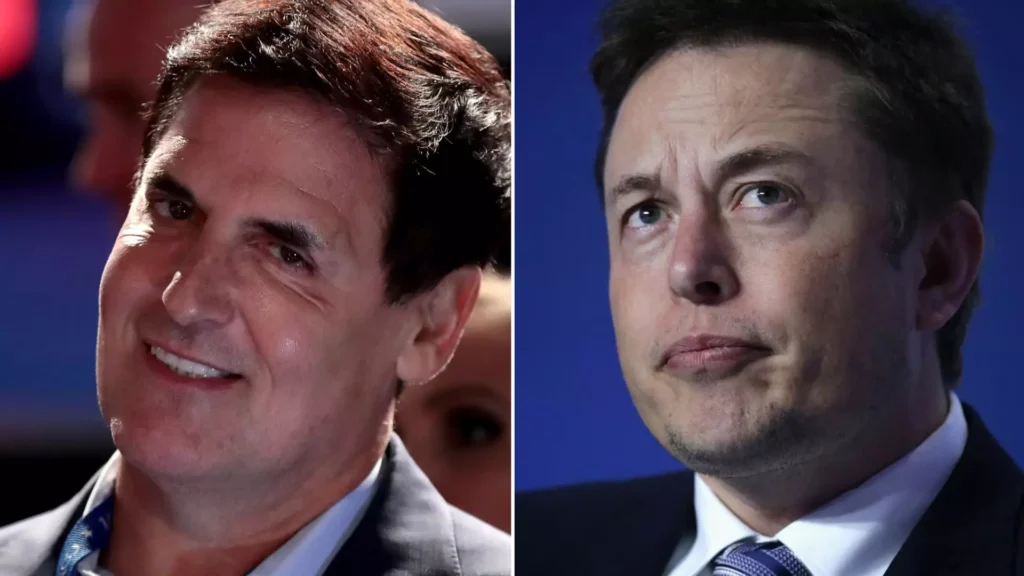Key Points
- Mark Cuban issued a public warning to Elon Musk about the risks of aligning with Donald Trump, highlighting the unpredictability of political loyalty.
- Cuban emphasized that loyalty in politics is often transactional, and those who expect reciprocity may be disappointed.
- Musk’s recent pivot to endorse Trump is a departure from his previous stance, signaling possible strategic ambitions to influence government policy.
- Cuban has shifted his support to Vice President Kamala Harris, favoring her economic policies, and some speculate he may have ambitions for a regulatory role.
- The evolving relationship between Musk and Trump highlights the broader risks that business leaders face when engaging in political alliances.

The Complex Business of Political Alliances: A Cautionary Warning from Mark Cuban to Elon Musk
In today’s political and business environment, personal ambition and strategic alliances often intersect in ways that can have profound impacts on public perception, corporate success, and political influence. The recent exchange between billionaire investor Mark Cuban and Tesla CEO Elon Musk illustrates this complexity, as Cuban issued a cautionary message to Musk regarding his evolving political alliance with former U.S. President Donald Trump. Cuban’s warning highlights the delicate nature of political loyalty and the potential pitfalls that come with it.
Mark Cuban’s Caution: Political Loyalty as a Double-Edged Sword
Mark Cuban’s message, posted on the social media platform X, encapsulates a universal truth about political alliances: loyalty is often transactional and rarely guarantees reciprocity. In his caution to Musk, Cuban hinted that while Musk may view his support for Trump as a form of political capital, history shows that political figures, particularly in a transactional political climate, may not repay loyalty as expected.
Cuban’s public commentary taps into the core issue of political reciprocity. For business leaders who leverage political support, it’s essential to understand that the dynamics of loyalty in politics are not as straightforward as they might be in business. Cuban’s own experience informs his perspective—he understands that aligning with political figures, especially controversial ones, is fraught with risks. The complexities of political loyalties often leave even the most influential supporters vulnerable to changing power dynamics, and Cuban is urging Musk to consider this carefully.
Musk’s Political Pivot: Opportunistic or Strategic?
Elon Musk’s recent shift toward endorsing Trump represents a stark departure from his previous, more critical stance. Musk’s earlier comments about Trump revealed a deep ambivalence, if not outright opposition, to the former president’s policies. However, his pivot signals a possible opportunistic approach to politics, potentially aimed at securing a role in shaping government policy.
Musk has expressed interest in leading a proposed government efficiency commission if Trump regains the presidency. For Musk, this alignment could yield significant opportunities to influence policy in ways that benefit his vast business empire. However, as Cuban warned, political capital is not a guaranteed return on investment. While Musk’s relationship with Trump could open doors, it may also leave him exposed to the unpredictability of political tides.
Cuban’s Own Political Maneuvering: Ambition Meets Strategy
Cuban’s remarks to Musk also reflect his personal political trajectory, which has shifted in recent years. Cuban has become a vocal supporter of Vice President Kamala Harris, citing her economic policies as more favorable for business growth compared to Trump’s. His involvement in political discourse has not gone unnoticed, with some speculating that Cuban may be positioning himself for a future role in government, possibly at regulatory bodies like the Securities and Exchange Commission (SEC).
Cuban’s alignment with Harris appears strategic, signaling that his political engagements are more than just endorsements—they are carefully calculated moves that could serve his future ambitions. By openly discussing the risks of political alliances, Cuban is positioning himself as a savvy political actor who understands the delicate balance of loyalty and self-interest.
The Bigger Picture: Risks for Musk and Beyond
For Elon Musk, the stakes are considerable as he navigates these politically charged waters. Aligning with Trump may provide short-term benefits, but it could also alienate key consumer bases or invite public backlash that could harm Tesla’s brand. Moreover, Musk’s vocal stance on controversial issues such as immigration and election integrity suggests he is keenly aware of the political landscape, but his alignment with Trump might lead to unforeseen consequences.
The broader implications of Cuban’s warning go beyond Musk and Trump, shedding light on how business moguls influence political outcomes and the potential risks they face. Cuban’s commentary serves as a reminder that even the most powerful business figures are not immune to the volatility of political alliances.
Conclusion: Political Alliances Are Fragile and Fraught with Risk
The evolving relationship between Mark Cuban and Elon Musk underscores the intricate and often precarious nature of political alliances. Cuban’s warning is a timely reminder of the risks involved when business interests collide with political loyalties. As both billionaires continue to navigate this terrain, their actions will likely reverberate across the political and business landscapes for years to come. History has shown that political alliances can be fragile, and those who align their fortunes with political figures must be prepared for the possibility that such loyalties may not always be reciprocated.